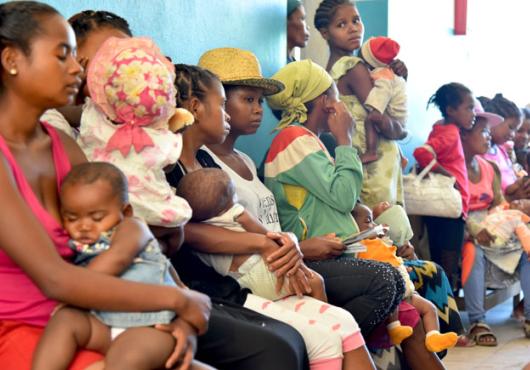By Anne Azuka
Wife of the Delta State Governor, Deaconess Tobore Oborevwori on Monday flagged-off the Measles-Rubella Vaccine (MRV) advocacy rollout in the state with a call on parents and care givers to take advantage of the vaccination services of the National Programme on Immunization (NPI).
Deaconess Oborevwori, while performing the ceremony in Asaba, said the programme, an initiative of the Nigeria Governors Spouses Forum, was targeted at sensitising mothers and caregivers on the efficacy of vaccines to prevent childhood diseases and ensure that all children were appropriately immunised.
She added that the advocacy was also aimed at increasing vaccine access and acceptability, particularly in areas with low vaccination rate, with a view to ensuring a reduction in children suffering from measles and rubella, as well as complications arising from the disease, which included blindness, brain damage and death.
The First Lady stated that the MORE agenda of his husband’s administration was committed to the well-being of all Deltans, and ensuring that childhood diseases and child mortality were reduced to the barest minimum through effective immunization.
Deaconess Oborevwori maintained that parents and care givers could not afford not to benefit from the laudable programme to protect the health of their children, especially at the grassroots, stressing that it was the right of every child to be immunized and saved from the vaccine preventable diseases.
“The vaccines are safe, effective, and are administered free of charge. All of us are stakeholders in this project, so, I am calling on every one of us to make a commitment on this”, she said.
The Governor’s wife appealed to traditional rulers, religious leaders, strategic stakeholders, donor agencies and partners to be at the forefront of the campaign and drive the sensitization programme in the rural areas.
On malaria, after her investiture as the Delta State NET Ambassador and endorsement of the 2025 Insecticide Treated Net (ITN) Mass Distribution Campaign, the First Lady identified the scourge as a major public health challenge in the state and across Nigeria, accounting for a significant burden of illness and death, particularly among pregnant women and children under the age of five.
She noted that despite the progress so far made over the years, it was clear that more still needed to be done to eliminate the preventable and treatable disease, describing her investiture as not only symbolic but also a clarion call to action.
While endorsing and supporting the 2025 ITN Campaign, Deaconess Oborevwori expressed appreciation to the National Malaria Elimination Programme (NMEP), State Malaria Elimination Programme (SMEP), the Society for Family Health (SFH), World Health Organization (WHO), Management Science for Health (MSH), United Nations International Children’s Emergency Fund (UNICEF), and all health workers who had contributed to the fight against malaria.
Earlier in his address, the State Commissioner for Health, Dr. Joseph Onojoame, said measles could result in serious complications like pneumonia and even death, with high fever, cough, running nose, difficulty with breathing, and a distinctive red rash as the common symptoms.
He added that the disease is highly contagious, spread from person to person through aerosol from an infected person, pointing out that rubella is a milder illness which affects mostly pregnant women, some of whom had been reported to transmit it to their unborn babies, even as he emphasized that “measles and rubella are vaccine preventable”.

Leave a Reply